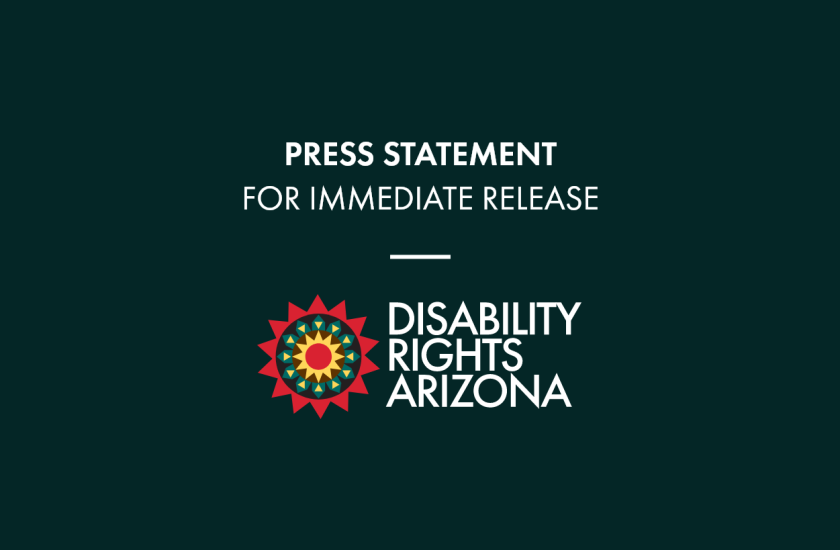TUCSON AND PHOENIX — On July 26, 2017, the country celebrates the 27th anniversary of the passage of the Americans with Disabilities Act (ADA). Today, in recognition of this anniversary, DRAZ, the National Association of the Deaf, and Stein & Vargas, LLP sent a letter to each County Regional 911 Coordinator (except Maricopa Association of Governments, which has already approved funding for text-to-911) to ask that they make text-to-911 services available in their respective counties.
The ADA mandates that accommodations and services for people with disabilities keep pace with the rapidly changing technology of the times. Technological advances like text messaging now offer deaf, hard of hearing, and speech-challenged individuals the ability to gain meaningful access to emergency telecommunications services (911). With text-to-911 services, a person is able to contact 911 by texting, rather than making a call. This allows them to enjoy the essential safety benefits of constant cellular phone access that individuals without those disabilities now take for granted.
Hearing individuals can reliably use their cellular phones to access emergency services to summon emergency medical help, or to report any number of emergency situation, such as fire, home invasion, assault, domestic violence, or even an Amber Alert tip, without wasting precious seconds looking for a public telephone or landline. Today, people who are deaf, hard of hearing, and speech-challenged use texting, videophones, social media, smartphone apps, and other technologies for their telecommunications needs. Text messaging allows a degree of quality and speed in telecommunication access for those individuals that was previously unimaginable, drastically increasing the interactivity of communication. However, to date the only jurisdiction in Arizona to provide text-to-911 services is Lake Havasu City.
“Even as technology has enormously increased access to emergency telephone services for hearing individuals, access for individuals who are deaf, hard of hearing, or speech-challenged in most Arizona counties is frozen in the early 1990s,” said Rose Daly-Rooney, Legal Director at theDisability Rights Arizona. “Emergency telephone services is limited to antiquated telephone based, landline-reliant, teletype telephones (TTYs) that very few people own anymore. This has to change and it has to change now. People’s lives depend on it.”
In the letters, ACDL outlines various options the counties can take to become accessible and advance the technology of their emergency services. “We hope the counties will promptly comply with the law,” said Asim Dietrich, Staff Attorney. “Offering text-to-911 is required under the ADA and it’s the right thing to do,” he added.
The Disability Rights Arizona (DRAZ), formerly Arizona Center for Disability Law (ACDL) is a non-profit law firm that assists Arizonans with disabilities to promote and protect the legal rights to independence, justice, and equality that the ADA mandates. The DRAZ envisions a society where people with disabilities enjoy full acceptance without barriers.
The National Association of the Deaf (NAD) is the nation’s premier civil rights organization of, by, and for deaf and hard of hearing individuals in the United States. For more information about NAD, visit https://www.nad.org/.
Stein & Vargas, LLP is a civil rights law firm committed to the principle that all people have full and equal access to all parts of American society. For more information about Stein & Vargas, LLP, visit https://www.steinvargas.com/.
